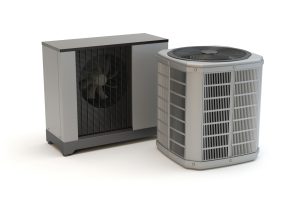We often get questions from customers about the lifespan of their heat pumps, as well as how they can keep these units running effectively for as long as possible. Knowing what affects your heat pump’s life expectancy, as well as the best ways to care for it, can help you get the most out of your investment. Here’s what you need to know about when it will be time for a heat pump replacement in Milledgeville, GA.
Average Heat Pump Lifespan
Most heat pumps can last between 10 to 15 years under normal conditions, but this range can vary depending on several factors, such as the quality of the unit, the climate, and, most importantly, regular maintenance.
Because heat pumps handle both heating and cooling, they work year-round, often experiencing more wear and tear than a traditional air conditioner or furnace. This constant use means they benefit greatly from biannual maintenance, which can keep them running efficiently and extend their lifespan.
Factors That Affect Heat Pump Longevity
Several factors influence how long your heat pump will last:
- Climate: Heat pumps in colder or hotter regions work harder to maintain comfortable indoor temperatures, leading to faster wear. In milder climates, they often don’t experience as much stress. We’re fortunate to be in one of those milder climates here in Georgia.
- Frequency of Use: If your heat pump is in use year-round, it will experience more wear and tear. Homeowners in areas with distinct seasonal changes, where cooling or heating isn’t needed as frequently, may see their heat pumps last longer.
- System Quality: High-quality heat pump systems from reputable brands tend to last longer, especially if they’re sized and installed correctly for your home’s needs.
- Regular Maintenance: Heat pumps that receive regular professional maintenance last significantly longer than neglected units. Skipping or delaying maintenance can lead to issues that shorten your system’s lifespan, as well as decreased efficiency and performance. Heat pumps must have maintenance twice a year because of how frequently they work.
- Usage Habits: Adjusting the thermostat frequently or setting extreme temperatures can add to the strain on your heat pump. A programmable thermostat can help manage indoor temperatures more evenly and reduce unnecessary stress on your system.
Signs It May Be Time to Replace Your Heat Pump
Even with the best care, all heat pumps will eventually need replacement. Here are some signs it may be time to consider a new system:
- Increasing Repair Costs: Frequent repairs or an unusually high repair bill are signals your heat pump might be nearing the end of its lifespan.
- Decreased Efficiency: If your energy bills are rising, despite your heat pump not running more frequently, it could be a sign of declining efficiency due to age.
- Unusual Noises: Rattling, grinding, or other loud noises often indicate parts that are wearing down and may need replacement soon.
- Difficulty Reaching Set Temperature: If your heat pump struggles to maintain the temperature you’ve set, it may be losing power and efficiency.
Schedule Your Heat Pump Maintenance Now
If you haven’t scheduled your fall maintenance for your heat pump yet, now is the perfect time. Maintenance can help prevent breakdowns and keep your system operating efficiently, so you stay comfortable no matter the season. We provide comprehensive maintenance services to keep your heat pump running smoothly and extend its life.


